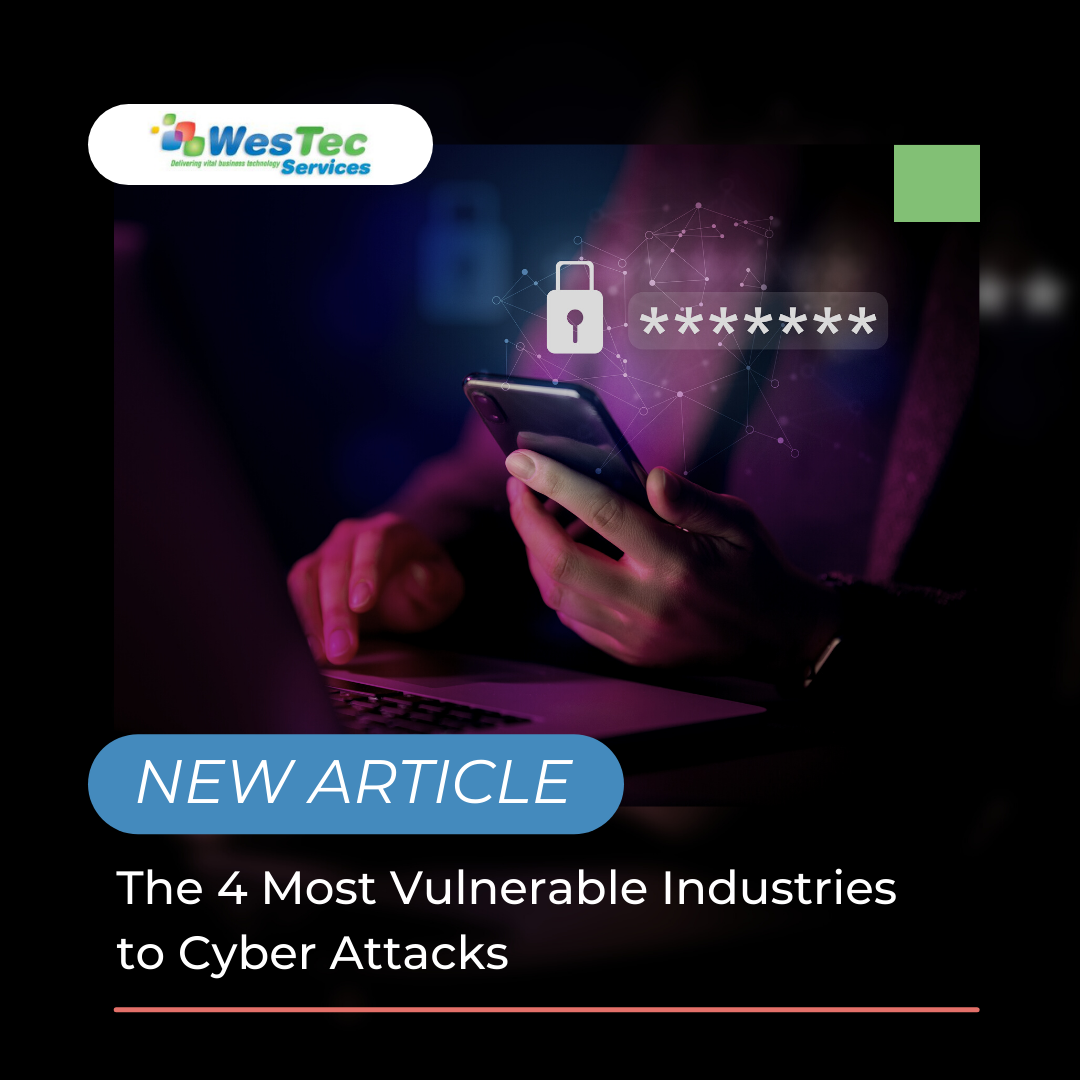
The 4 Most Vulnerable Industries to Cyber Attacks
Cyber attacks have become a large issue and concern for many businesses. Since technology continues to change and develop everyday, it has revealed vulnerability in protective digital software. The result of this being the significant rise of security breaches, with any and all industries being at risk. However, there are those who are at a greater risk than others, and are commonly targeted by cyber attackers. Here are the 4 most vulnerable industries to cyber attacks, and why they require higher level security.
Healthcare
The healthcare industry is specifically targeted based on the amount of sensitive and personal data they handle. Ransomware poses a great threat to healthcare companies, with cybercriminals making their data inaccessible unless a payment has been made. With healthcare industries possessing multiple patient files, personal information, and payment statements, the attackers are aware that the organization cannot bear the expense of losing data.
Government Agencies
When it comes to government data, there’s no surprise as to why cyber criminals would desire access. Government agencies contain personal identifying information, classified documents, and military secrets. These agencies face threats such as cyber espionage, which is the spying and installation of spyware to government devices. They also must look out for insider threats, which is the leaking of confidential information through their own employees. This can be both accidental and deliberate. Phishing can also trick employees into sending sensitive information to the wrong recipient.
Financial Institutions
Due to the large amount of money and financial information banks and other financial services manage, cybercriminals have all the reason to target them. Money has become extremely digital, which has created new ways to exploit any weaknesses in the system. Thieves will phish, use mobile malware, and hack into banking accounts and commit fraudulent transactions.
Retail
Shops in-store and online are vulnerable to the theft of valuable data. They struggle with the issue of credit card fraud, online data breaches, and identity theft. Credit card fraud can cause all kinds of unwanted trouble for retailers, and can lose profit at the hands of fraudulent purchases. Identity theft poses a threat because of thieves that steal other user information to create credit card accounts to make purchases. Customer credentials are at risk at the expense of data breaches, so security software should always be stable and secure.
These industries might be commonly targeted, but any company of any size can be at a risk of cyberattacks. Taking preventative measures will protect your company, your employees, and those who keep you in business. If you have any questions about our IT services, contact us today! Follow us on Facebook to keep up with our latest blogs!










 2916 West TC Jester Blvd.,
Suite 104
2916 West TC Jester Blvd.,
Suite 104 sales@westecservices.net
sales@westecservices.net